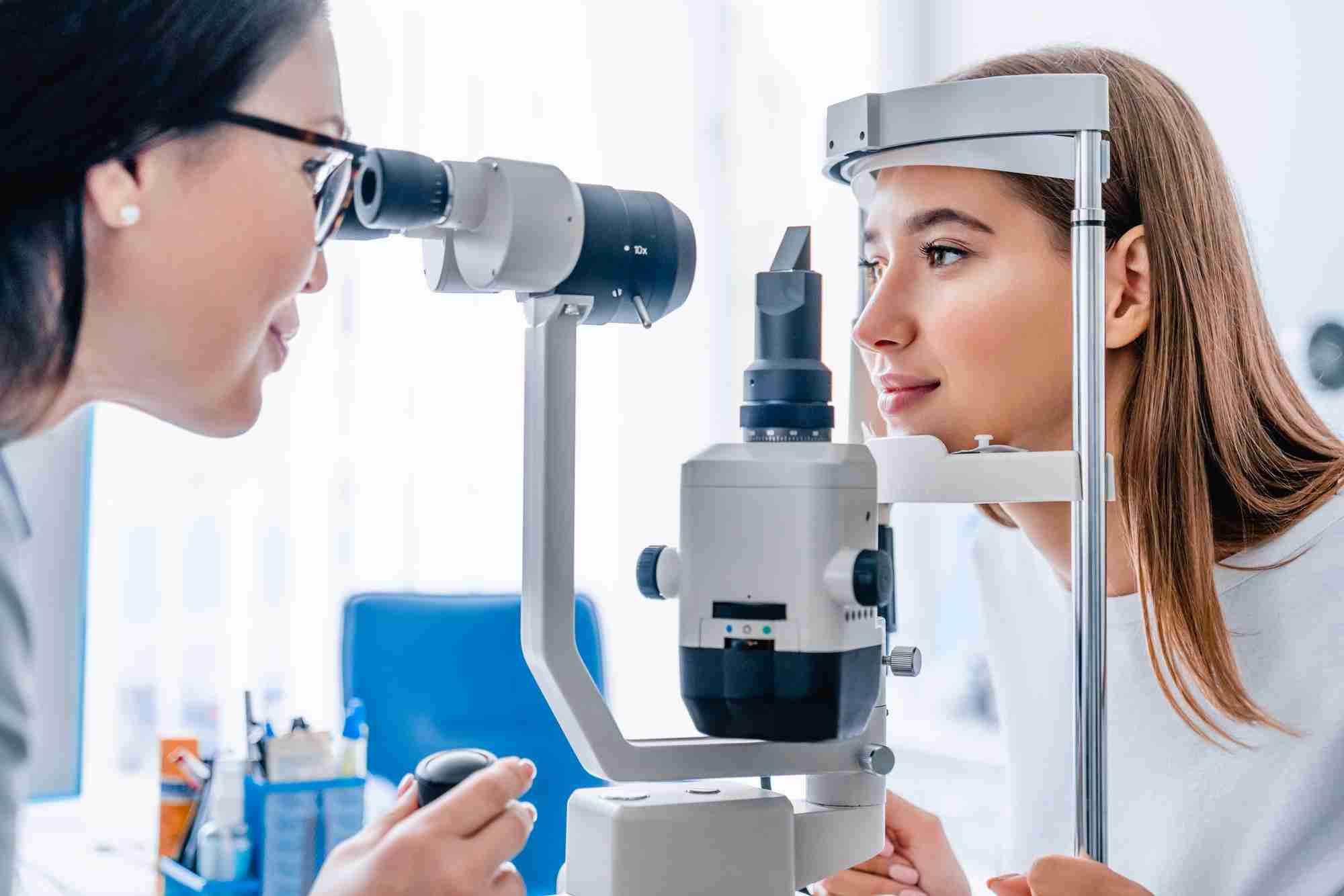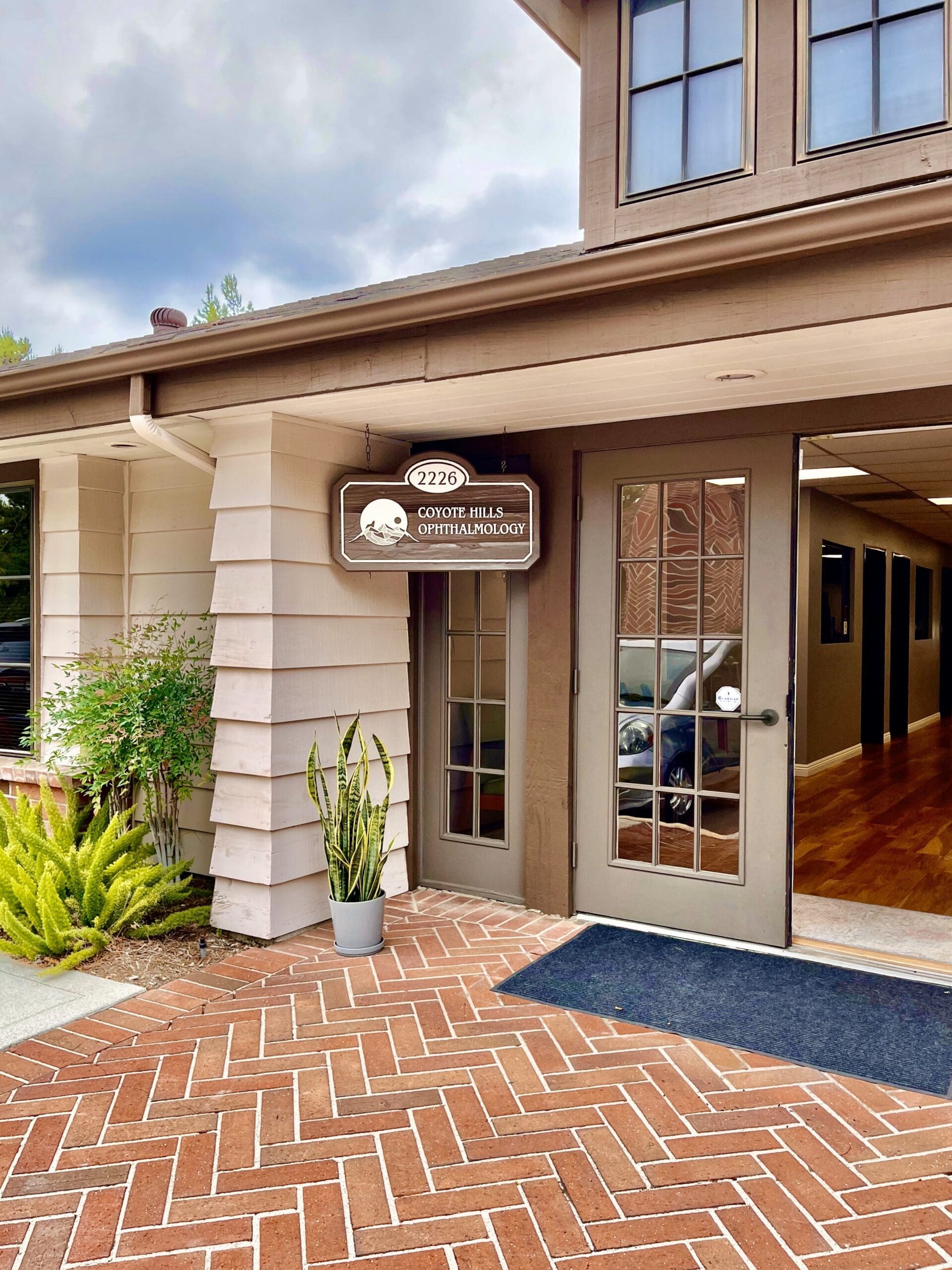Why is my Vision Blurry?

Expert Insights on Eye Health and Common Vision Concerns
Your eyes are an essential part of your overall health. As an ophthalmology clinic, our goal is to provide you with clear, reliable information about vision concerns, their causes, and how they can be effectively managed. Let’s explore some of the most common conditions affecting vision and how they are treated.
Why Is My Vision Blurry?
Blurry vision is one of the most frequent complaints from patients. It can occur suddenly or gradually and may affect one or both eyes. While temporary blurriness may result from fatigue or dryness, persistent blurry vision often signals an underlying condition that needs attention.
Possible Causes of Blurry Vision
- Refractive Errors: Conditions like nearsightedness (myopia), farsightedness (hyperopia), or astigmatism result from irregularities in how the eye focuses light.
- Solution: Corrective glasses, contact lenses, or refractive surgeries like LASIK.
- Cataracts: A common cause of blurry vision in older adults, cataracts occur when the eye’s natural lens becomes cloudy.
- Treatment: Cataract surgery replaces the cloudy lens with a clear intraocular lens (IOL).
- Glaucoma: This condition damages the optic nerve, often due to increased pressure in the eye. Blurry vision may occur later in life, but can also occur in individuals of all ages.
- Management: Prescription eye drops, laser therapy, or surgical interventions to lower eye pressure.
- Diabetic Retinopathy: High blood sugar can damage the retina, leading to blurred vision or even vision loss if untreated.
- Treatment Options: Laser therapy, anti-VEGF injections, and vitrectomy surgery in advanced cases.
- Age-Related Macular Degeneration (AMD): AMD affects the macula, the part of the retina responsible for sharp central vision.
- Treatment: For Wet AMD, anti-VEGF injections can slow the progression. Dry AMD may benefit from lifestyle modifications and nutritional supplements.
- Dry Eye Syndrome: Insufficient tear production or poor tear quality can cause discomfort and blurry vision.
- Relief: Artificial tears, prescription eye drops, and lifestyle changes to improve tear health.

Understanding Eye Diseases and How We Treat Them
Cataracts
Cataracts develop when proteins in the eye’s natural lens break down, causing cloudiness. This results in blurry vision, difficulty with night driving, and sensitivity to light.
Common Actions: Surgery is a possible treatment for cataracts. Modern cataract surgery is quick, safe, and involves implanting a custom intraocular lens to restore clear vision.
Glaucoma
Often called the “silent thief of sight,” glaucoma develops gradually and may not show symptoms until vision loss occurs. It’s caused by elevated intraocular pressure damaging the optic nerve.
Common Actions: Regular eye exams are critical for early detection. Treatment may includes medicated eye drops, laser therapy, and advanced surgical techniques to reduce pressure and protect the optic nerve.
Age-Related Macular Degeneration (AMD)
AMD affects the central retina (macula), impairing the ability to see fine details.
- Dry AMD progresses slowly and is managed with dietary changes and supplements containing vitamins C, E, zinc, and lutein.
- Wet AMD is more aggressive but treatable with anti-VEGF injections that reduce abnormal blood vessel growth in the retina.
Common Actions: Early diagnosis through retinal imaging helps preserve vision. Regular monitoring is essential, especially for patients over 50 or those with a family history.
Diabetic Retinopathy
This condition occurs when elevated blood sugar levels damage retinal blood vessels, leading to blurred vision, floaters, or vision loss. It’s a leading cause of blindness among working-age adults.
Common Actions: Annual eye exams are crucial for individuals with diabetes. Treatments vary and depending on the treatment can prevent or slow progression. In advanced cases, surgical options can restore function.
Why Choose an Ophthalmologist for Your Eye Health?
As a medical clinic specializing in eye health, our approach combines advanced diagnostics, surgical expertise, and compassionate care. Our priority is not only to treat eye conditions but also to educate patients about maintaining their vision for years to come.
Here’s what sets specialized our care apart:
- Comprehensive Expertise: From prescribing glasses to performing complex surgeries, our ophthalmologists offer a full spectrum of care.
- Advanced Technology: State-of-the-art imaging and surgical tools allow precise diagnoses and treatments.
- Personalized Treatment: Each patient receives a tailored plan based on their unique needs.
When Should You See an Ophthalmologist?
If you experience symptoms like blurry vision, eye pain, floaters, flashes of light, or sudden vision changes, it’s important to seek medical attention promptly. Many eye conditions can be treated effectively, but early detection is key to achieving the best outcomes.
Protect Your Vision Today
Your eyesight is one of your most valuable senses. Regular eye exams, early diagnosis, and expert care are the cornerstones of maintaining healthy vision. As an ophthalmology clinic, we’re here to provide guidance, answer your questions, and deliver the highest level of care for your eyes.
If you’re experiencing vision concerns, don’t wait. Schedule an appointment today with our Ophthalmologist to take the first step toward clear, healthy vision.
Talk to our Doctor at Coyote Hills Ophthalmology
Make an appointment with our clinic today! Get the care you need at our serene and calm clinic in Fullerton, California.
Coyote Hills Ophthalmology
Where our patients are treated like family
We are proud to deliver quality ophthalmic care that includes all life cycles. From diagnosing anterior segment pathologies to treating retinal diseases, you need a comprehensive expert who will tie it all together and help you prioritize your vision.

Request Appointment
Prioritize your vision and make an appointment to be seen.
Education
UCLA
Undergraduate studies in International Development
Georgetown
School of Medicine Doctor of Medicine
Experience
Harbor-UCLA
General Surgery Internship
LAG + USC
Comprehensive Ophthalmology Residency
Private Practice
Medical Retina Procedures and Basic Vitreoretinal Surgery Fellowship
Accolades
Stein Eye Institute-UCLA
Ophthalmic Pathology Fellowship
NIH- NCI
IRTA Cancer Research Fellowship
Prioritize your vision and help preserve your sight.
Causes of Blurred Vision
- Gradual Vision Loss
- Refractive Error
- Cataract
- Diabetes
- Glaucoma
- Uveitis
- Central serous retinopathy
- Retinal Detachment
- Retinal Swelling
- Dry macular degeneration
- Corneal Swelling
- Problems with the Optic Nerve
- Sudden Vision Loss
- Corneal abrasion
- Trauma causing bleeding in the eye
- Retinal Detachment
- Acute angle closure glaucoma
- Macular Hole
- Wet macular degeneration
- Stroke
- Transient Vision Loss
- Amaurosis fugax
- Insufficient blood flow to the brain
- Migraine
- Fainting
- Visual Field Defect
- Stroke
- Retinal issue
- Glaucoma
- Brain tumor
Common Causes of Eye Pain
- Superficial/Foreign-body sensation/Itch/Burn
- Corneal foreign body
- Conjunctival foreign body
- Inflammed Pterygium
- Corneal Abrasion
- Corneal Infection
- Dry eye syndrome
- Allergies
- Eyelashes growing in the wrong direction
- Deep/Ache
- Inflammation: uveitis, scleritis, muscle, optic nerve
- Angle Closure
- Deep Infection
- Mass/Tumor
Causes of Tearing
- Watery Eyes
- Dry eye syndrome
- Misdirected eyelashes
- Eyelids with poor closure
- Corneal foreign body
- Blepharitis
- Inflammation of the tear drainage system
- Blockage of the tear drainage system
Causes of Discharge
- Sticky Eyes
- Infection
- Allergies
- Problem with the tear drainage system
- Corneal Ulcer
- Blepharitis
Causes of Flashing Lights
- Retinal Tear
- Retinal Detachment
- Vitreous Detachment
- Migraine
- Other retinal issues
Causes of a Red Eye
- Vision is affected
- Corneal Abrasion
- Angle Closure Glaucoma
- Uveitis/ severe scleritis
- Severe conjunctivitis/ viral or bacterial infection
- Vision is not usually affected
- Mild conjunctivitis/ allergic, viral or bacterial
- Subconjunctival hemorrhage
- Episcleritits
- Mild Scleritits
Procedures we Offer in Clinic
Eyelash Epilation
Corneal or Conjunctival Foreign Body Removal
Laser Retinopexy
Pan Retinal Photocoagulation
Laser YAG Capsulotomy (Neodymium:yttrium-aluminum-garnet)
Laser Peripheral Iridotomy
SLT (Selective Laser Trabeculoplasty)
Chalazion Excision
Eyelid Biopsy for small lesions
Lacrimal System Probing
Subconjunctival/Subtenon’s Injection
Intravitreal Injection
Retrobulbar Injection
Bandage Contact lens placement
Medical neuromodulation treatment
Cosmetic procedures
Surgeries we offer in the Operating Room:
Cataract Surgery
Pterygium Surgery
Eyelid Surgery
Retinal Surgery
2226 N. State College Blvd.
Fullerton, CA 92831
About Our Clinic
Located in Fullerton, CA
Our clinic is located on the Corner of E. Bastanchury Road and N. State College Blvd. within the Coyote Hills Professional Center complex across the street from Summit House Restaurant.
Call us to plan your appointment: (714) 888-5076
Hours
Weekdays
9:00 AM - 5:00 PM. Weekends & Holidays By appointment only
ADA Accessible
Our clinic is accessible to people of all life cycles. There are no stairs to navigate.
Free Parking
There is ample free parking in a private lot just outside our clinic's main entrance.
Insurance Accepted
We accept most insurances, call our clinic and we will help explain your benefits so there are no surprises.

Coyote Hills Ophthalmology is a premier eye practice, offering comprehensive ophthalmic care for patients at all stages of life.
Common Symptoms
Patient Resources
Provider Resources
Copyright © 2025 Coyote Hills Opthalmology. All Rights Reserved
